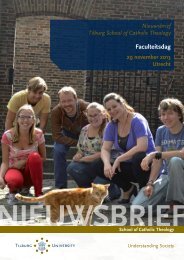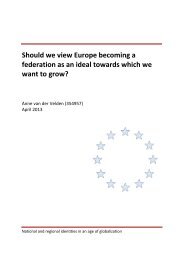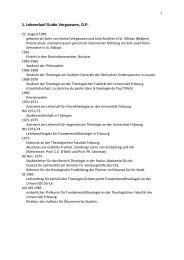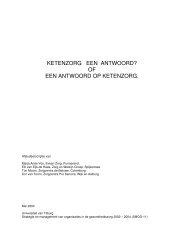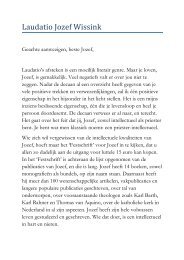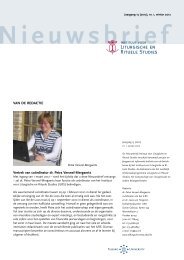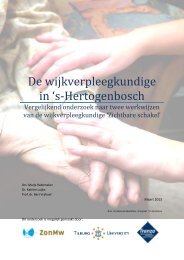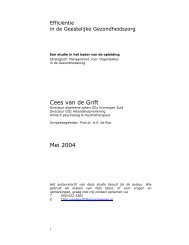Here - Tilburg University
Here - Tilburg University
Here - Tilburg University
You also want an ePaper? Increase the reach of your titles
YUMPU automatically turns print PDFs into web optimized ePapers that Google loves.
Presenters<br />
Davidov, Eldad; <strong>University</strong> of Zurich<br />
Dülmer, Hermann; <strong>University</strong> of Cologne<br />
Authors<br />
Eldad Davidov; <strong>University</strong> of Zurich<br />
Hermann Dülmer; <strong>University</strong> of Cologne<br />
Elmar Schlüter; <strong>University</strong> of Cologne<br />
Peter Schmidt; State <strong>University</strong> Higher School of Economics (HSE) in Moscow<br />
Title<br />
Explanation of Cross-Cultural Measurement In-equivalence using a Multilevel<br />
Structural Equation Modeling Approach<br />
Abstract<br />
Testing for equivalence of measurements across groups (such as countries<br />
or time points) is essential before meaningful comparisons of correlates and<br />
means may be conducted. However, often equivalence is not present and, as a<br />
result, comparisons across groups are problematic and biased. Scalar<br />
equivalence is only seldom supported by the data. In the current study we<br />
propose utilizing a multilevel structural equation modeling (SEM) approach to<br />
model and explain scalar in-equivalence. This method does not resolve in-<br />
equivalence but rather illuminates why it is present. We illustrate the method<br />
using data on human values (Schwartz 1992) from the second round of the<br />
European Social Survey. Thus, a new direction for research even when<br />
equivalence is not present is proposed.<br />
Key words: Human values; Configural, metric, and scalar equivalence;<br />
Multilevel confirmatory factor analysis (CFA) / Multilevel structural equation<br />
modelling (SEM); European Social Survey; Comparisons over time and/or<br />
countries.




